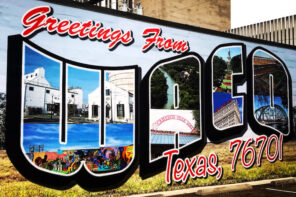Yesterday, World Vision and other religious groups sent a letter to members of Congress, urging it not to pass legislation that would prohibit religious-based hiring discrimination by non-profits receiving federal funding. The principal signatories to the letter — World Vision’s Richard Stearns, the Union of Orthodox Jewish Congregations of America’s Nathan Diament, and Anthony R. Picarello of the U.S. Conference of Catholic Bishops, all serve on President Obama’s Advisory Council to the Office of Faith-Based and Neighborhood Partnerships (OFBNP).
Currently, under an Office of Legal Counsel memorandum and executive orders signed by former president George W. Bush, faith-based recipients of federal funding are permitted to discriminate in hiring based on the religious beliefs of the applicant or the applicant’s lack of compatibility with the organization’s religious beliefs. Religious and civil liberties groups have long urged President Obama to follow through with a campaign promise to end the hiring discrimination with taxpayer dollars, and remain deeply frustrated with the administration’s failure to act.
But it was more right-leaning evangelicals and Catholics that pressured Obama to punt on the campaign promise. In putting together the OFBNP in 2009, Obama told the Advisory Council that, while it would study and make recommendations to “reform” the office, it would not be offering any advice on the contentious faith-based hiring issue.
Obama could end the practice through executive order; legislation wouldn’t be necessary. World Vision, though, is drawing attention to a provision in the pending Substance Abuse and Mental Health Administration reauthorization that would prohibit religious discrimination in hiring by groups receiving federal funding. But World Vision, the U.S. Conference of Catholic Bishops, and the Orthodox Union urged Congress not to pass any legislation and also continued to urge the administration not to change the Bush policy.
Americans United for the Separation of Church and State spoke out in opposition to the letter, with executive director the Rev. Barry Lynn calling it “disgraceful” that when so many Americans are out of work, “some religious leaders want to deny government-funded job opportunities on the basis of religion.”
Lynn told me today, “this whole thing driven by the Conference of Catholic Bishops and World Vision, which have sucked up a vast amount of federal dollars and want to keep every one of them. The real problem is the audacity of these groups to suggest that if somehow they didn’t get the money because of their discriminatory hiring practices, the poor would be left hopeless. There are dozens of charities who don’t get money, who don’t discriminate, and don’t get money because so much of the federal funding is in the sponges of the United States Catholic Conference and World Vision.”
Lynn added that “my fear is that this argument” — that without funding the poor would left high and dry — “is what’s making the administration nervous. They don’t like to hear it, but I think it’s simply a red herrring.”
While under federal civil rights laws religious groups can legally discriminate in hiring if they are funded with private money, before Bush changed the policy via executive order, they could not do so if they received federal funds.
“This could be fixed by executive order,” said Lynn. “It was dreamed up out of whole cloth by the last administration, they could be eliminated and rewritten by this administration and be in my judgment, comporting with the Constitution and with the civil rights framework of this country.”
I have just obtained a copy of the letter, and additional signatories include Jim Wallis, the Rev. Samuel Rodriguez, Franklin Graham, and Richard Land of the Southern Baptist Convention.
I also obtained a statement by the Rev. Welton Gaddy, president of the Interfaith Alliance, highlighting that many religious groups do not share the letter signers’ views on what they call “co-religionist” hiring. Gaddy pointed out how “numerous religious groups” in the Coalition Against Religious Discrimination oppose permitting recipients of taxpayer dollars to discriminate in hiring.
If the World Vision letter signers had their way, an evangelical organization receiving taxpayer-funded government grants could discriminate against a Muslim applicant because he or she doesn’t share a faith in Christ, or against a lesbian applicant because the organization believes homosexuality to be a sin.
Franklin Graham, for example, who signed the letter, believes that Islam is an “evil and wicked religion.” And Samuel Rodriguez believes evangelicals need to “repudiate the spirit of Herod, the spirit of Sodom and Gomorrah, the spirit of Jezebel.” Both believe taxpayer dollars can help support such beliefs — since, by signing the letter, they’ve indicated that an evangelical organization receiving federal faith-based grants could decline to hire someone who shared those views, or who might be one of those evil, wicked people.
“Religious organizations desiring such a counter-Constitutional exception display frightening insensitivity to the religious freedom clauses in the Constitution that have contributed to the vitality of religion in this nation,” said Gaddy.




